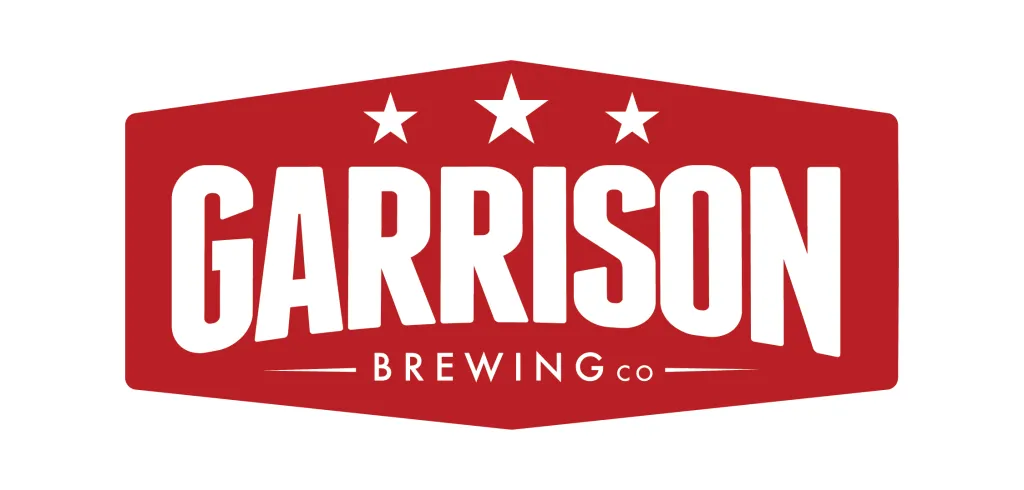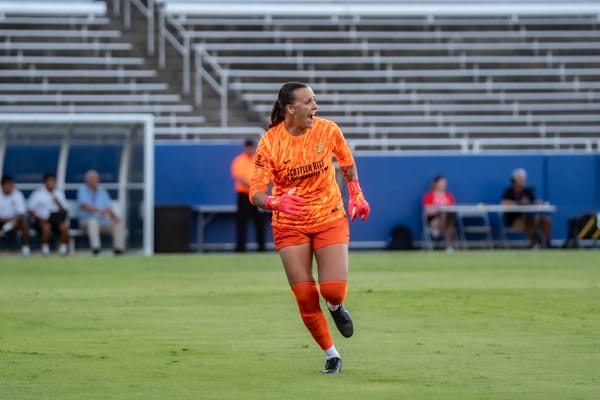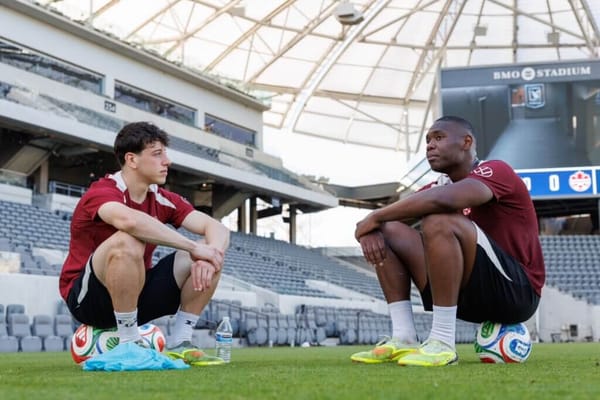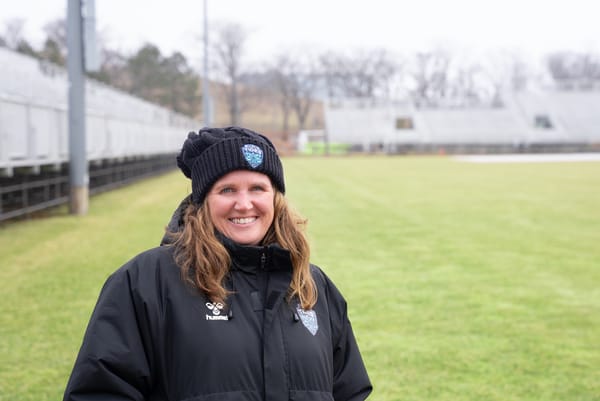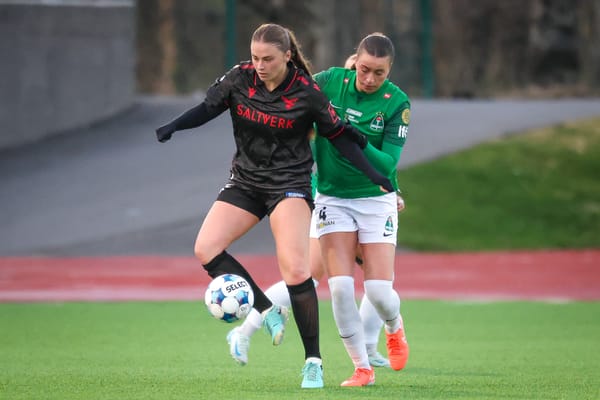A 'tough' first half, squad building and a coaching change: A mid-season Q&A with Halifax Tides sporting director Amit Batra
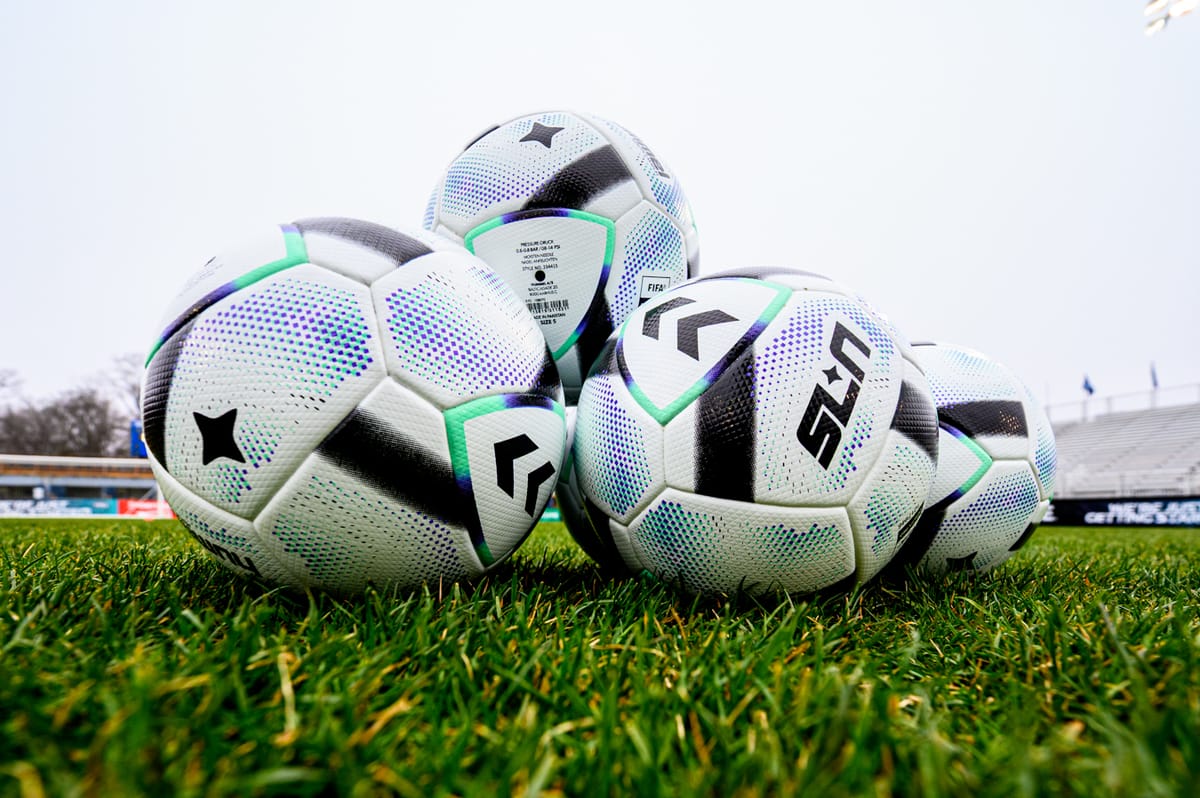
After so much discussion, hope and anticipation, the first half of the inaugural Northern Super League (NSL) season is history. The Halifax Tides have experienced many firsts since their home opener in April. And they've dealt with their share of changes, be it the hiring of interim head coach Stephen Hart, the addition of new players or the departure of others.
Tides sporting director Amit Batra has been central to it all. As part of his role, he's responsible for helping to guide the vision of the club as it evolves from startup to NSL contender. Halifax, as they say, wasn't built in a day.
Josh Healey of HFX Football Post recently caught up with Batra to review the season so far, discuss new player signings and find out what to expect from the club moving towards the end of the year.
JH: Amit, you and I talked in pre-season. The Tides have played 14 matches so far. How are you feeling about the first half of the campaign?
AB: Well, we knew the first half, I think, for everybody, would be tough. You're feeling things out and things are going to change rapidly. Our view was the first half could be a bit of a grind and then there'd be a transfer window opening up that would allow us to impact our roster and add to what we think is a lot of raw, young talent with experienced sprinkled in. We thought we could add to that, add to the competitive level and really go into the second half of the season and impact those results not only in the short term but some of those signings, you know, could become part of our base of players we're looking at for next year.
From my perspective, the first half — lots of positives with the club but, obviously, we'd like that grind to have maybe a couple more results that could've gone our way. The fact that we're still within touching distance, and the experience they've gained and the tightness in the locker rom, the comradery in the team, will really serve us well. I feel okay about it but I think the second half is going to be very, very important.
JH: I just wanted to pick up on something you mentioned there. Some of the results didn't go your way early. Of course, you got your first win over the line, which is great. But do you look back over your roster construction and some of the decisions you made and maybe wish you had one or two more experienced hands to start? I know you guys went into the season with a couple roster spots available.
AB: Yeah, I think we were a late club starting in a lot of ways. I felt good about who we brought in but I think that level of experience and the game play, you can only really gauge that once you get into the season. Not really any regrets but knowing that we could add to a pretty strong nucleus, whatever the results are, the type of people and the people we brought in, (we're) really happy with.
And then giving them more support, more squad rotation, is important. For sure, that wears on you. I think five games in 18 days — and I think everyone has tough periods in their schedule — and four in 12, that was a really tough stretch. You play seven games in three months and then five in 18 days. That's a tough stretch.
JH: And it's not like you're just flying between Halifax and Toronto every time. You're criss-crossing the continent for some of the longest away days in world football.
AB: I don't like to make any excuses. At any point in the season, every team will have a part of their schedule they don't like but a friend of mine did point out to me that when we went to Vancouver twice in 16 days, you know, you could fly to Moscow and it's about the same distance. That gives you a little bit of a comparable.
JH: I want to talk about some of the highs for a little bit. You helped build the team with (former head coach) Lewis Page. I'm sure the first win took longer than you guys would've liked but how did it feel to get that over the line at the Wanderers Grounds?
AB: Obviously, it felt great and probably a lot of excitement, a bit of relief, especially where the ball had to be cleared off the line at the last second of the game, so that's the need for relief. The fact that we had so many fans on such a rainy night to celebrate that with us, even the rain opening up after the game, felt almost part of the whole experience.
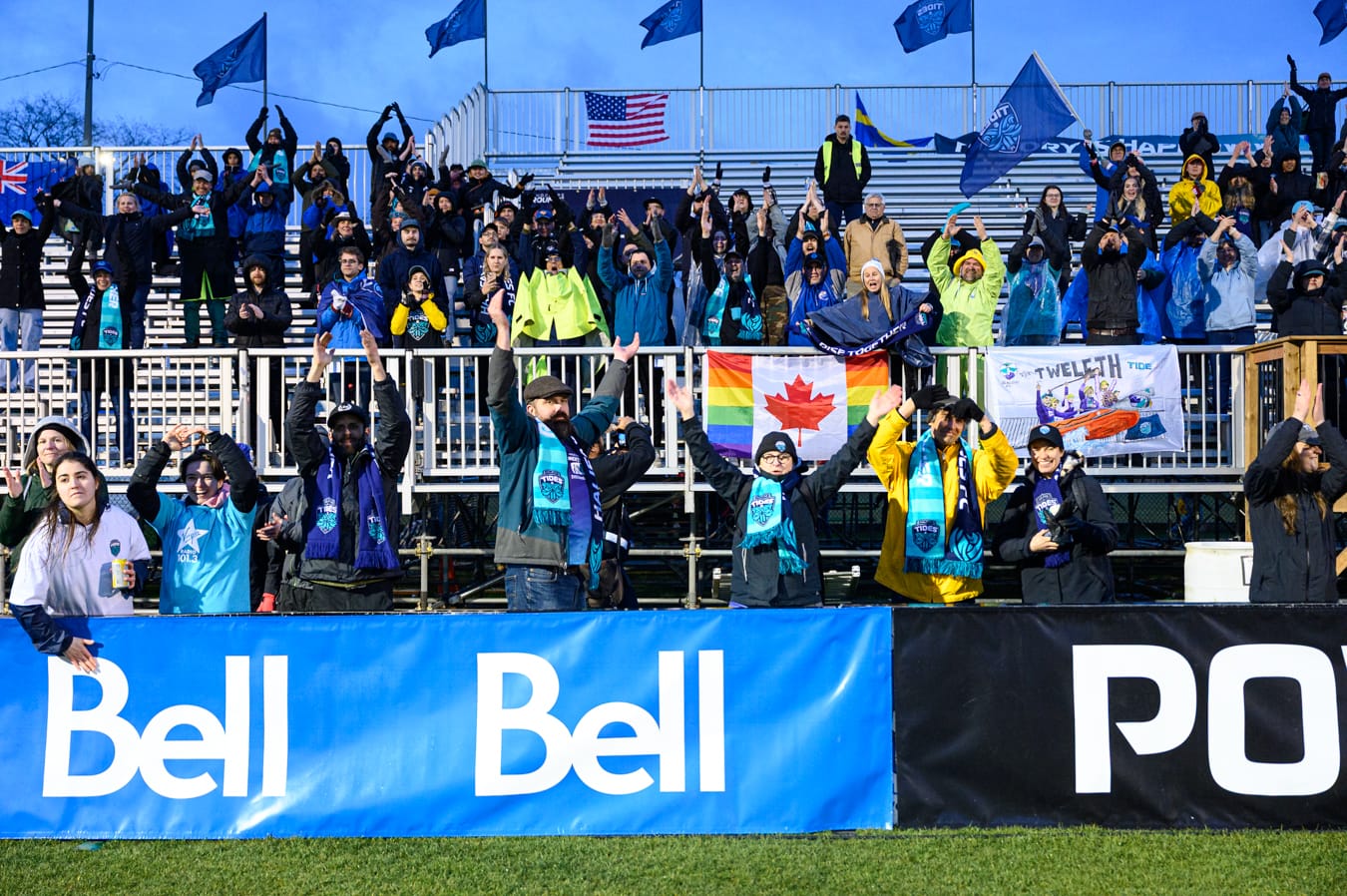
But there was more than one opportunity (to get that win). Sometimes, we could've performed better and sometimes, and this happens to every team, there was probably two penalties in that game (not called) and it didn't matter in the end because we won. But there was two penalties leading up to that — and we've seen it happen to other teams, too — and then there's another win and another tie in our record if that happens. That's not sour grapes but what I think it means is we probably didn't need to wait that long for our first win because our performances in some of the earlier games were enough to get a result and we deserved better a couple times.
JH: I know for the Canadian Premier League they receive match reports and things like that for the referee performances. I assume you guys get those as well?
AB: We can meet with the referees once a month to discuss things and it's never to point fingers, it's to build that relationship and try and improve because this league isn't just for the players. There's sporting ops people, coaches, marketing people, and referees that are all part of this growth. I think it's really positive that we have that open line of communication.
JH: Speaking about growth, just in your own words, can you tell me about some of your new additions? Of course you have Julianne Vallerand, Amanda Allen and Tiffany Cameron who have joined. What attracted you guys to these players?
AB: Tiffany and Julianne, and I mean, Julianne's a young player but has been in a lot of big environments at the youth national level, which some of our other players have had, too. U-15, U-17 and U-20 for Canada. A lot of experience there, she's two-footed, really good in the air, versatile and, in her youth, she was the Golden Boot winner for the league in Québec. All of those things, it adds, again, more squad rotation, more depth, more competition and the versatility she brings is really important.
Tiffany, the experience she brings as a youth international with Canada and then two World Cups with Jamaica, playing in a top league in the world, scoring goals there, gives us that movement and ability to link up with the midfield and then move into the next level to receive the ball again. You bring quality in and the right person, again.
And Amanda, she's frankly coming from one of the best clubs in the world, where it's very, very competitive and she's a bright star and a future star and has already had an impact for us on the results side. She's fitting in, demanding, accountable.
If you look at those three players, they also bring some pace to our team which has allowed us to stretch the other team more. Teams are pressing us, they're playing their full-backs higher and now they have to be a little more guarded about that. It gives us more than one way to break a team down. We can stretch them. We can open them up and open opportunities to play through the middle as well.
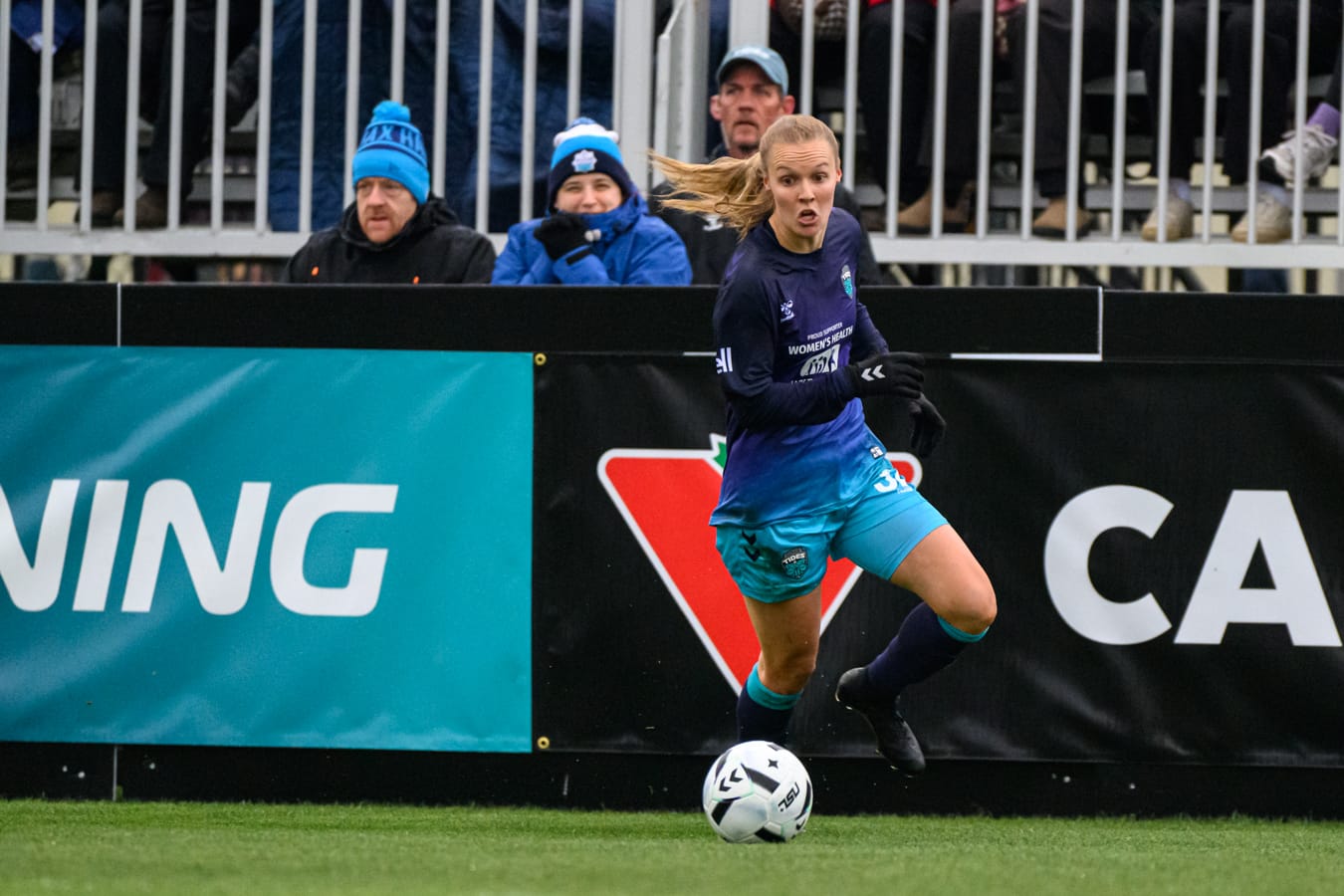
JH: Was pace something you identified as something you needed to add to, as you said, have another look for your attack? Syd Kennedy brings quite a lot of pace as well.
AB: Syd's been fantastic and you're relying on her, on her own, to break people down individually and for other players to kind of link up. You're running them, running them, having them play every minute. So, eventually, that's not sustainable for anybody.
That ability to not only relieve each other but to give different looks to the opponent is important. To me, it wasn't just pace, because when you look at Syd, she had quality. I feel like when you get pace with quality, that can make the most impact versus maybe a university league, that's where just pace can sometimes be enough. Here, pace with quality was the formula.
JH: Can you hint, for Tides fans, if there are any more additions on the way?
AB: Yeah, I mean, we still have a couple of spots and the transfer window doesn't close until the end of August. With increased competition for places, you evaluate that. I do think with our injuries in the midfield we need to bolster there and, depending when this article comes out, you may see someone else or hinting that someone else is coming.
JH: So I'm going to try and get this out as soon as possible so it's current.
AB: Fair enough.
JH: We've also seen a subtraction, as well. Is there any details you can share about Gianna Creighton's departure from the club?
AB: It was friendly and amicable. This was a big, new jump for everybody and really, sometimes, it comes down to fit. There isn't really a lot to tell. It was decided by both parties that maybe being closer to home and pursuing opportunities closer to home might be a better fit.
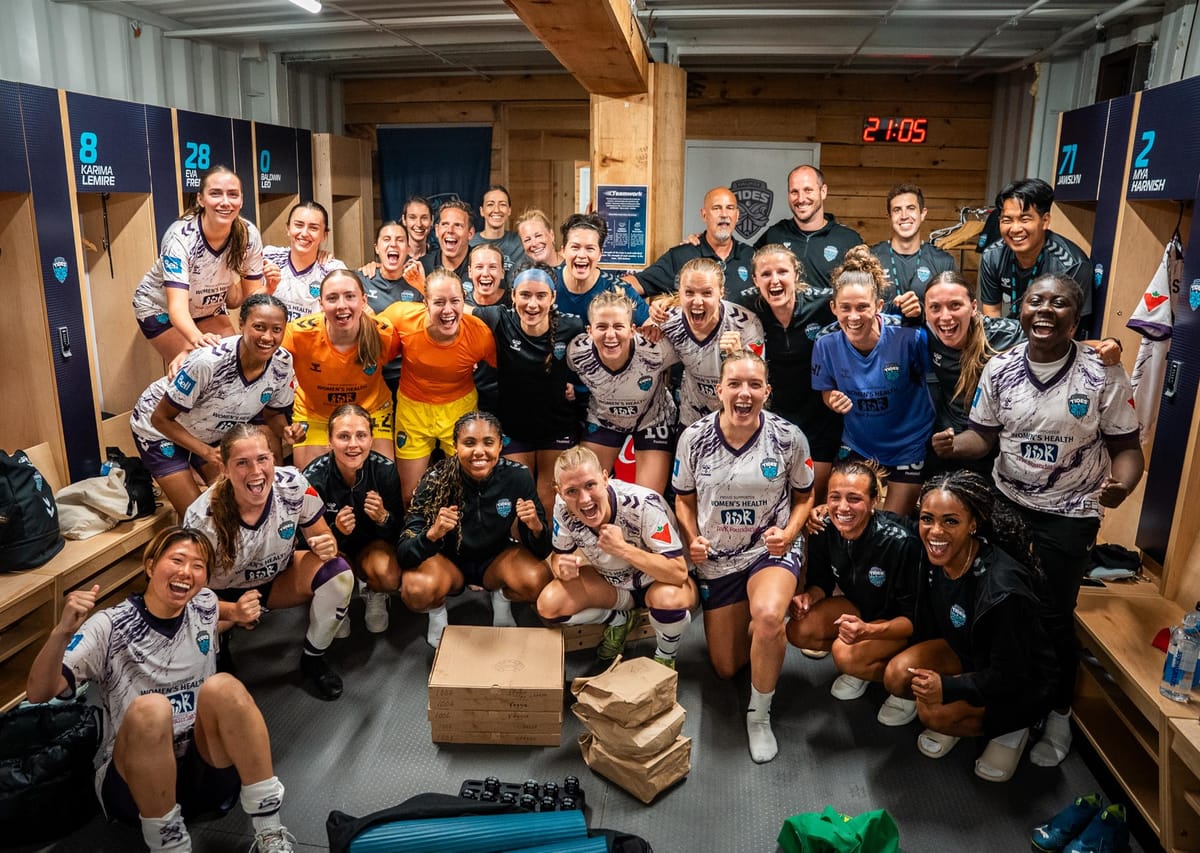
JH: Speaking about a player who has really performed well, Karima Lemire has played a big role. I think she was the first Tides player to log 1,000 minutes this season. Did you always know she was going to be so important to the matchday squad? She started as a left-back and yet has been a core piece of the midfield.
AB: I think, with Karima, we knew her pedigree with her having played in the U-17 World Cup, we knew she'd been a pro for a few years, so that's the experience combined with the young player profile. Being left-footed helped.
One of the things you always try and look at when building a squad is versatility because you know you're going to have injuries, you know things may change in how you see the game and what the league presents.
For Karima, when we scouted her, she was playing as a central defensive midfielder, as a No. 6. In training, her body positioning and reading of the play, was really valuable when she played in the full-back position for us. The fact that she can then move into the midfield — and it took an injury to make that happen — she stepped up in that position. I don't know that's what we expected but we knew she had that in her. She makes us look good in the way she's proving herself to be a really significant player in the league and for the Tides team.
JH: Well, when you speak about maybe players who could be used for a base for next year, she's quite young and, from the outside looking in, is a player you could see her coming back for next year.
AB: Yeah, for sure. All those decisions are yet to be made. There's definitely a core group here. And they're growing all the time. Part of the plan at the time was let's find that young, raw talent and their acceleration, their learning curve is so high, I don't think we've seen the best of (Karima) or any of them yet. That's a huge positive for us going forward.
JH: Just a few more questions. You and Lewis had known each other for a very long time. What's it been like to have the guy you helped build the roster with moved aside and then to have Stephen Hart come in?
AB: Lewis is highly respected and highly regarded. This is the first year for the club but it's kind of the Maritimes' team. I look at it as he's been part of this Maritime soccer community for so long, he has a lot of value, he's really well recognized for youth development. It was really a conversation of really what's the best fit here and then, with Stephen, similarly, if you've been in soccer in Atlantic Canada, or in North America, and sometimes, globally, the fact that we have that level of talent in our backyard, you couldn't get luckier.
We have two fantastic people now who will be leading the future and the current squads. For us, it's finding all the pieces of the puzzle and making them work. I use this analogy where, if a piece in a jigsaw puzzle isn't fitting, you don't throw the piece out. You just find a place where it fits and that's kind of what we feel about the situation.
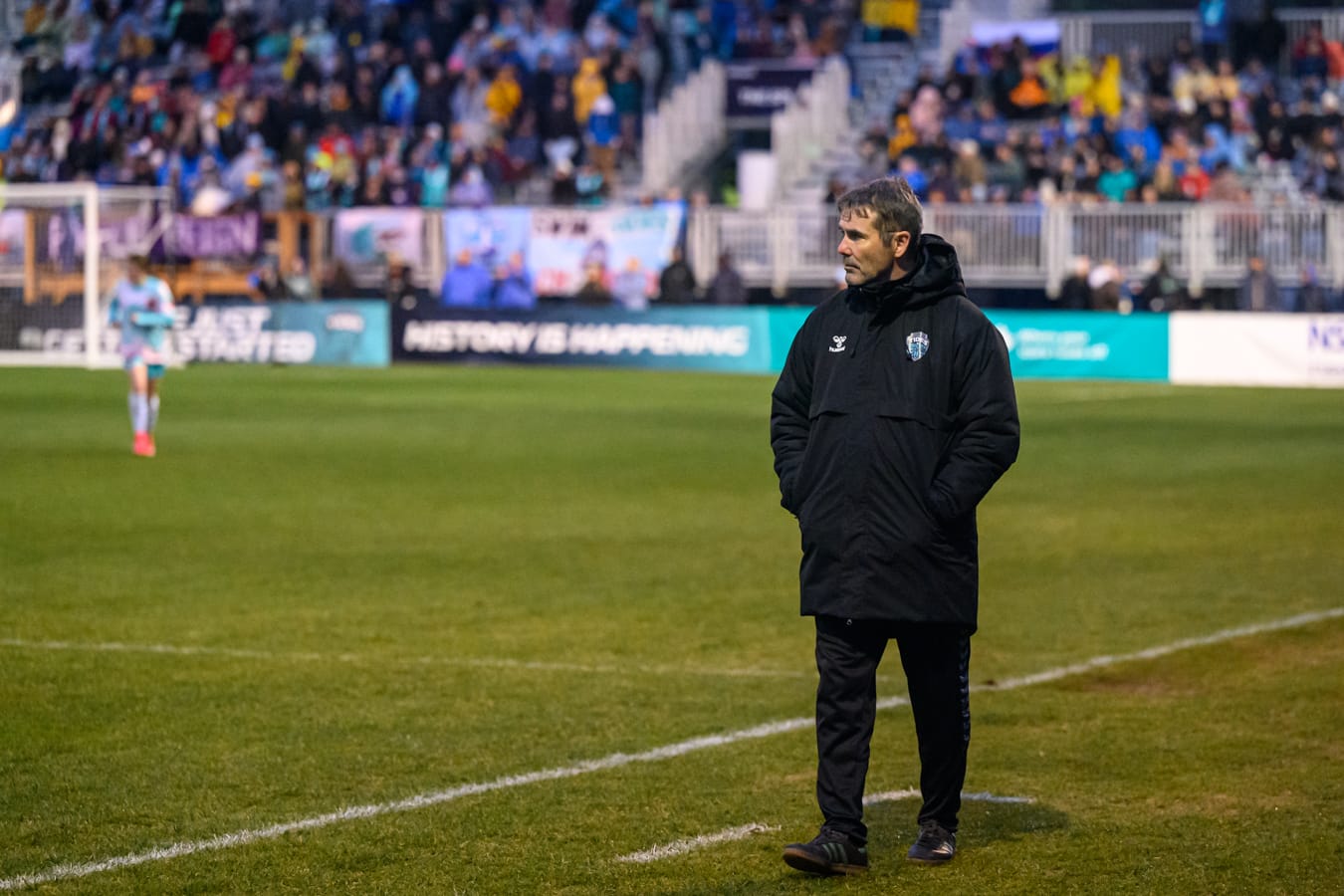
JH: Thank you for that. You've touched on it a little bit but how are you feeling going into the second half of the season?
AB: I think, for us, we're now going to see if the impact we've made by adding to the squad depth and competition, as we're chasing it, can allow us to be in the in-form team that gets into playoffs, so that's short-term.
But it gives us more opportunities for our medium-term for who's coming back by having a deeper squad. What's been most important is what kind of club are we so that long-term people know this is a place people want to play. That's been thanks to the way the team has come together and also the community support. This is a place people want to play.
Part of it will be hoping it integrates quickly enough and we're able to round into the form we think we can have.
JH: Fantastic. That's all the questions I have. Is there anything you'd like to add or highlight that I didn't ask?
AB: I think I've touched on it. The results haven't quite gone our way but, at the same time, with the kind of people we've brought here, the people we're working with, the whole organization, that's been top class. You know, we feel we got a lot more right than we didn't and even if we didn't get it right, it was more a matter of how does this work and fit together.
So, we were able to find out what we needed to fix earlier, which is probably a good position to be in. There's no hiding from it. And I feel when you have the right people on the bus, so to speak, you can really make progress pretty quickly.
JH: Thank you, as always, for your time. I really appreciate it. We'll hopefully see you on Saturday.
AB: Amazing, yes, see you on Saturday, hopefully.
Editor's Note: This interview has been condensed and edited for clarity.
Like this story? HFX Football Post is introducing The Tip Jar, a spot to throw a few bucks to help pay for things like contests, merch and more.
Cover Photo Credit: Halifax Tides FC
